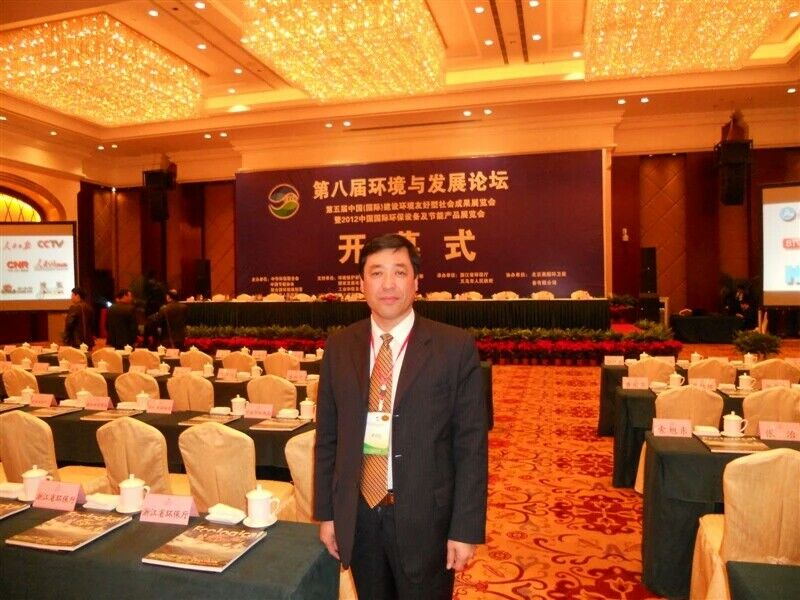Order of the President of the People's Republic of China
No.42
No.42
The Law of the People's Republic of China on Intangible Cultural Heritage adopted at the 19th Session of the Standing Committee of the 11th National People's Congress of the People's Republic of China on February 25, 2011, is hereby published and shall come into force on June 1, 2011.
Hu Jintao, President of the People's Republic of China
February 25, 2011
February 25, 2011
Contents
Chapter 1: General Provisions
Chapter 2: Investigations of Intangible Cultural Heritage
Chapter 3: Catalogue of the Representative Items of Intangible Cultural Heritage
Chapter 4: Inheritance and Spread of Intangible Cultural Heritage
Chapter 5: Legal Liabilities
Chapter 6: Supplementary Provisions
Chapter 1: General Provisions
Chapter 2: Investigations of Intangible Cultural Heritage
Chapter 3: Catalogue of the Representative Items of Intangible Cultural Heritage
Chapter 4: Inheritance and Spread of Intangible Cultural Heritage
Chapter 5: Legal Liabilities
Chapter 6: Supplementary Provisions
Article 2 For the purposes of this Law, intangible cultural heritage shall mean various traditional cultural manifestations which are handed down by the people of all ethnicities from generation to generation and regarded as a constituent part of their cultural heritage, and physical objects and premises related to the traditional cultural manifestations, including:
(1) Traditional oral literature and the language as a carrier thereof;
(2) Traditional fine arts, calligraphy, music, dance, drama, folk art and acrobatics;
(3) Traditional artistry, medicine and calendar;
(4) Traditional rituals, festivals and other folk customs;
(5) Traditional sports and entertainment; and
(6) Other intangible cultural heritage.
The relevant provisions of the Law of the People's Republic of China on the Protection of Cultural Relics shall apply to the physical objects and premises that are a constituent part of the intangible cultural heritage and falling under the category of cultural relics.
(1) Traditional oral literature and the language as a carrier thereof;
(2) Traditional fine arts, calligraphy, music, dance, drama, folk art and acrobatics;
(3) Traditional artistry, medicine and calendar;
(4) Traditional rituals, festivals and other folk customs;
(5) Traditional sports and entertainment; and
(6) Other intangible cultural heritage.
The relevant provisions of the Law of the People's Republic of China on the Protection of Cultural Relics shall apply to the physical objects and premises that are a constituent part of the intangible cultural heritage and falling under the category of cultural relics.
(一)傳統口頭文學以及作為其載體的語言;
(二)傳統美術、書法、音樂、舞蹈、戲劇、曲藝和雜技;
(三)傳統技藝、醫藥和歷法;
(四)傳統禮儀、節慶等民俗;
(五)傳統體育和游藝;
(六)其他非物質文化遺產。
屬于非物質文化遺產組成部分的實物和場所,凡屬文物的,適用《中華人民共和國文物保護法》的有關規定。
Article 3 The State shall preserve the intangible cultural heritage by adopting measures such as affirmation, recording and filing and protect the intangible cultural heritage that reflects the distinguished traditional culture of the Chinese nation and has historical, literary, artistic or scientific value by adopting measures such as the inheritance and promotion of such heritage.
Article 4 When protecting intangible cultural heritage, focus shall be laid on its authenticity, integrity and inheritance and such protection shall be conducive to strengthening the recognition of the culture of the Chinese nation, maintaining the unification of the country and the unity of the nation and promoting social harmony and sustainable development.
Article 6 The people's governments above the county level shall include the protection and preservation of intangible cultural heritage in the national economic and social development plans at their same levels and include the protection and preservation funding into the financial budgets at their same levels.
The State supports the work concerning the protection and preservation of intangible cultural heritage in ethnic regions, remote regions and poor regions.
The State supports the work concerning the protection and preservation of intangible cultural heritage in ethnic regions, remote regions and poor regions.
Article 7 The department in charge of culture under the State Council shall be responsible for the work concerning the protection and preservation of intangible cultural heritage throughout the country. The departments in charge of culture of the local people's governments above the country level are responsible for the work concerning the protection and preservation of intangible cultural heritage within their own administrative regions.
The other relevant departments of the people's governments above the county level are responsible for the work concerning the protection and preservation of intangible cultural heritage within the scope of their respective duties.
The other relevant departments of the people's governments above the county level are responsible for the work concerning the protection and preservation of intangible cultural heritage within the scope of their respective duties.
Article 11 The people's governments above the county level shall organize investigations of intangible cultural heritage based on the need of the work concerning the protection and preservation of intangible cultural heritage. The departments in charge of culture are responsible for conducting investigations of intangible cultural heritage.
The other relevant departments of the people's governments above the county level may conduct investigations of the intangible cultural heritage within the scope of their work.
The other relevant departments of the people's governments above the county level may conduct investigations of the intangible cultural heritage within the scope of their work.
Article 12 When conducting investigations of intangible cultural heritage, the departments in charge of culture and other relevant departments shall recognize, record and file the intangible cultural heritage and shall establish a sound investigation information sharing mechanism.
When conducting investigations of intangible cultural heritage, the departments in charge of culture and other relevant departments shall collect representative objects that are a constituent part of the intangible cultural heritage, organize the information obtained from the investigation work, properly keep the objects and information and prevent the damage or loss of the objects and information. The pictures of the physical objects and the duplicate copies of information obtained by other relevant departments shall be submitted to the departments in charge of culture at their same levels.
When conducting investigations of intangible cultural heritage, the departments in charge of culture and other relevant departments shall collect representative objects that are a constituent part of the intangible cultural heritage, organize the information obtained from the investigation work, properly keep the objects and information and prevent the damage or loss of the objects and information. The pictures of the physical objects and the duplicate copies of information obtained by other relevant departments shall be submitted to the departments in charge of culture at their same levels.
Article 13 The departments in charge of culture shall fully understand the relevant status of the intangible cultural heritage, establish records and relevant databases of the intangible cultural heritage. Except for the information that shall be kept confidential in accordance with the law, the information in the records and relevant databases of intangible cultural heritage shall be made public and be available for inspection by the public.
Article 15 The overseas organizations or individuals conducting investigations of intangible cultural heritage within the territory of the People's Republic of China shall report to the departments in charge of culture of the people's governments of the provinces, autonomous regions and municipalities directly under the Central Government for approval. If the investigation is carried out in more than two administrative regions of a province, autonomous region or municipality directly under the Central Government, the approval from the department in charge of culture under the State Council shall be obtained. After the completion of the investigation, the investigation report and the pictures of the physical objects and the duplicate copies of information obtained in the investigation shall be submitted to the department in charge of culture that has approved the investigation.
Overseas organizations that conduct the investigations of intangible cultural heritage within the territory of China shall conduct the investigations in cooperation with the domestic institutions engaging in the academic research of intangible cultural heritage.
Overseas organizations that conduct the investigations of intangible cultural heritage within the territory of China shall conduct the investigations in cooperation with the domestic institutions engaging in the academic research of intangible cultural heritage.
Article 17 With regard to the items of intangible cultural heritage that are on the verge of extinction as discovered by investigation or other means, the departments in charge of culture of the people's governments at the county level shall immediately record and collect the relevant physical objects or adopt other rescue and preservation measures. If inheritance is needed, effective measures that support inheritance shall be adopted.
Chapter 3: Catalogue of the Representative Items of Intangible Cultural Heritage
Article 18 The State Council shall establish the catalogue of the representative items of intangible cultural heritage at the national level and include items of intangible cultural heritage that reflect the distinguished traditional culture of the Chinese nation and has significant historical, literary, artistic or scientific value in the catalogue for protection.
The people's governments of the provinces, autonomous regions and municipalities directly under the Central Government shall establish the catalogue of the representative items of local intangible cultural heritage and include items of intangible cultural heritage within their own administrative regions that reflect the distinguished traditional culture of the Chinese nation and has historical, literary, artistic or scientific value in the catalogue for protection.
The people's governments of the provinces, autonomous regions and municipalities directly under the Central Government shall establish the catalogue of the representative items of local intangible cultural heritage and include items of intangible cultural heritage within their own administrative regions that reflect the distinguished traditional culture of the Chinese nation and has historical, literary, artistic or scientific value in the catalogue for protection.
Article 19 The people's governments of the provinces, autonomous regions and municipalities directly under the Central Government may recommend to the department in charge of culture under the State Council items in the catalogue of the representative items of intangible cultural heritage in their own provinces, autonomous regions and municipalities directly under the Central Government to be included in the catalogue of the representative items of intangible cultural heritage at the national level. The following materials shall be submitted when making the recommendation:
(1) The introduction of the items, including the name, history, current conditions and value of the items;
(2) The introduction of the inheritance situation, including the inheritance scope, the inheritance pedigree, the artistry standard of the inheritor and the social impact of the inheritance activities;
(3) The protection requirements, including the objectives that shall be realized by the protection and the measures, steps and management system that shall be adopted; and
(4) Materials such as the visual and audio information that may help to explain the items.
(1) The introduction of the items, including the name, history, current conditions and value of the items;
(2) The introduction of the inheritance situation, including the inheritance scope, the inheritance pedigree, the artistry standard of the inheritor and the social impact of the inheritance activities;
(3) The protection requirements, including the objectives that shall be realized by the protection and the measures, steps and management system that shall be adopted; and
(4) Materials such as the visual and audio information that may help to explain the items.
Article 20 If a citizen, legal person and other organizations believe that an item of intangible cultural heritage reflects the distinguished traditional culture of the Chinese nation and has significant historical, literary, artistic or scientific value, they may recommend to the people's governments of the provinces, autonomous regions and municipalities directly under the Central Government or the department in charge of culture under the State Council to include the said item in the catalogue of the representative items of intangible cultural heritage at the national level.
Article 22 The department in charge of culture under the State Council shall organize the expert review team and the expert review committee to conduct preliminary evaluation and review of the item of intangible cultural heritage that is recommended or suggested to be included in the catalogue of the representative items of intangible cultural heritage at the national level.
The preliminary evaluation opinions shall be adopted subject to more than half of the members of the expert review team. The expert review committee shall review the preliminary evaluation opinions and issue review opinions.
The review work shall follow the principles of openness, fairness and impartiality.
The preliminary evaluation opinions shall be adopted subject to more than half of the members of the expert review team. The expert review committee shall review the preliminary evaluation opinions and issue review opinions.
The review work shall follow the principles of openness, fairness and impartiality.
Article 23 The department in charge of culture under the State Council shall make a public notice to publish the items intended to be included in the catalogue of the representative items of intangible cultural heritage at the national level to solicit opinions from the public. The time for public notice shall not be less than 20 days.
Article 24 The department in charge of culture under the State Council shall prepare the catalogue of the representative items of intangible cultural heritage at the national level based on the review opinions of the expert review committee and the result of the public notice and submit the catalogue to the State Council for approval and publication.
Article 25 The department in charge of culture under the State Council shall organize the formulation of the protection plan and protect the representative items of intangible cultural heritage at the national level.
The departments in charge of culture of the people's governments of the provinces, autonomous regions and municipalities directly under the Central Government shall organize the formulation of the protection plans and shall protect the representative items of local intangible cultural heritage approved by the people's governments at the same levels for publication.
The protection plan of the representative items of intangible cultural heritage shall focus on the protection of representative items of intangible cultural heritage that are on the verge of extinction.
The departments in charge of culture of the people's governments of the provinces, autonomous regions and municipalities directly under the Central Government shall organize the formulation of the protection plans and shall protect the representative items of local intangible cultural heritage approved by the people's governments at the same levels for publication.
The protection plan of the representative items of intangible cultural heritage shall focus on the protection of representative items of intangible cultural heritage that are on the verge of extinction.
Article 26 With regard to specific regions where the representative items of intangible cultural heritage are concentrated, have distinct features and the form and content thereof are fully preserved, the local departments in charge of culture may formulate special protection plans. The regional overall protection shall be implemented after the plans are approved by the people's governments at the same levels. If it is confirmed that regional overall protection shall be implemented for the intangible cultural heritage, the wishes of the local residents shall be respected, the physical objects and premises that are a constituent part of the intangible cultural heritage shall be protected to avoid any damage thereof.
If the implementation of regional overall protection involves the spatial planning of the village, town or street where the intangible cultural heritage clusters together, the local department in charge of urban and rural planning shall formulate the special protection plan in accordance with the relevant regulations.
If the implementation of regional overall protection involves the spatial planning of the village, town or street where the intangible cultural heritage clusters together, the local department in charge of urban and rural planning shall formulate the special protection plan in accordance with the relevant regulations.
Article 27 The department in charge of culture under the State Council and the departments in charge of culture of the people's governments of the provinces, autonomous regions and municipalities directly under the Central Government shall supervise and examine the implementation of the plan for protecting the representative items of intangible cultural heritage and shall rectify and handle the case in a timely manner if it is discovered that the protection plan is not effectively implemented.
Chapter 4: Inheritance and Spread of Intangible Cultural Heritage
Article 29 The department in charge of culture under the State Council and the departments in charge of culture of the people's governments of the provinces, autonomous regions and municipalities directly under the Central Government may determine the representative inheritors of the representative items of intangible cultural heritage approved by the people's governments at their same levels for publication.
The representative inheritors of the representative items of intangible cultural heritage shall meet the following conditions:
(1) Familiar with the intangible cultural heritage they inherit;
(2) Are representative in the specific area and have more significant influence in certain areas; and
(3) Actively carry out inheritance activities.
The provisions of this Law in relation to the review of the representative items of intangible cultural heritage shall apply as the reference and be implemented in determining the representative inheritors of the representative items of intangible cultural heritage and the list of representative inheritors determined shall be published.
The representative inheritors of the representative items of intangible cultural heritage shall meet the following conditions:
(1) Familiar with the intangible cultural heritage they inherit;
(2) Are representative in the specific area and have more significant influence in certain areas; and
(3) Actively carry out inheritance activities.
The provisions of this Law in relation to the review of the representative items of intangible cultural heritage shall apply as the reference and be implemented in determining the representative inheritors of the representative items of intangible cultural heritage and the list of representative inheritors determined shall be published.
Article 30 The departments in charge of culture of the people's governments above the county level shall, based on their needs, adopt the following measures to support the representative inheritors of the representative items of intangible cultural heritage to carry out the activities of the inheritance and spread of intangible cultural heritage.
(1) Provide the requisite inheritance premises;
(2) Provide the necessary funding to support the representative inheritors to carry out activities such as teaching, imparting skills or exchanges;
(3) Support the representative inheritors to participate in charitable activities in the society; and
(4) Support the representative inheritors to carry out other measures for the activities of the inheritance and spread of intangible cultural heritage.
(1) Provide the requisite inheritance premises;
(2) Provide the necessary funding to support the representative inheritors to carry out activities such as teaching, imparting skills or exchanges;
(3) Support the representative inheritors to participate in charitable activities in the society; and
(4) Support the representative inheritors to carry out other measures for the activities of the inheritance and spread of intangible cultural heritage.
Article 31 The representative inheritors of the representative items of intangible cultural heritage shall perform the following obligations:
(1) Carry out inheritance activities and cultivate talented successors;
(2) Properly keep the relevant physical objects and information;
(3) Cooperate with the departments in charge of culture and other relevant departments in the investigations of intangible cultural heritage; and
(4) Participate in public welfare publicity for intangible cultural heritage.
If a representative inheritor of a representative item of intangible cultural heritage does not perform the obligations prescribed in the preceding paragraph without legitimate grounds, the department in charge of culture may revoke his qualification as the representative inheritor and re-determine the representative inheritor of that item. If the inheritance ability is lost, the department in charge of culture may re-determine the representative inheritor of that item.
(1) Carry out inheritance activities and cultivate talented successors;
(2) Properly keep the relevant physical objects and information;
(3) Cooperate with the departments in charge of culture and other relevant departments in the investigations of intangible cultural heritage; and
(4) Participate in public welfare publicity for intangible cultural heritage.
If a representative inheritor of a representative item of intangible cultural heritage does not perform the obligations prescribed in the preceding paragraph without legitimate grounds, the department in charge of culture may revoke his qualification as the representative inheritor and re-determine the representative inheritor of that item. If the inheritance ability is lost, the department in charge of culture may re-determine the representative inheritor of that item.
Article 33 The State encourages activities such as scientific and technical research related to intangible cultural heritage, the research of the methods of protecting and preserving intangible cultural heritage, the record of intangible cultural heritage and the compilation and publication of the representative items of intangible cultural heritage.`
Article 34 Schools shall carry out education relating to intangible cultural heritage in accordance with the provisions of the department in charge of education under the State Council.
The news media shall carry out the publicity of the representative items of intangible cultural heritage and popularize knowledge of intangible cultural heritage.
The news media shall carry out the publicity of the representative items of intangible cultural heritage and popularize knowledge of intangible cultural heritage.
Article 35 Public cultural institutions such as libraries, cultural centers, museums and science and technology museums, academic research institutions and protection institutions of intangible cultural heritage and artistic and cultural performance groups and entities operating venues for performance that are organized with fiscal funding shall carry out the compilation, research and academic exchange of intangible cultural heritage and the publicity and exhibition of the representative items of intangible cultural heritage according to their respective business scope.
Article 37 The State encourages and supports the leveraging of the special advantages of intangible cultural heritage resources and the reasonable utilization of the representative items of intangible cultural heritage to develop cultural products and cultural services with local and ethnical features and market potential on the basis of effective protection of those items.
When developing and utilizing a representative item of intangible cultural heritage, the representative inheritor shall be supported to carry out inheritance activities and protect the physical objects and premises that are a constituent part of that item.
The local people's governments above the county level shall support the entities that use the representative items of intangible cultural heritage in a reasonable manner. Entities that use the representative items of intangible cultural heritage in a reasonable manner may be entitled to the preferential tax polices prescribed by the State in accordance with the law.
When developing and utilizing a representative item of intangible cultural heritage, the representative inheritor shall be supported to carry out inheritance activities and protect the physical objects and premises that are a constituent part of that item.
The local people's governments above the county level shall support the entities that use the representative items of intangible cultural heritage in a reasonable manner. Entities that use the representative items of intangible cultural heritage in a reasonable manner may be entitled to the preferential tax polices prescribed by the State in accordance with the law.
Chapter 5: Legal Liabilities
Article 38 The staff of the departments in charge of culture and other relevant departments who are derelict in duties, abuse powers, practice favoritism or commit irregularities in the work concerning the protection and preservation of intangible cultural heritage shall be punished in accordance with the law.
Article 40 A party that violates the provisions of this Law and damages the physical objects and premises that are a constituent part of the intangible cultural heritage shall assume civil liability in accordance with the law. If such act constitutes an act in violation of the administration of public security, the penalty for offenses against public security administration shall be imposed in accordance with the law.
Article 41 An overseas organization that violates the provisions of Article 15 of this Law shall be ordered to make rectification, issued a warning and have the illegal gains and the physical objects and information obtained in the investigation confiscated by the department in charge of culture. Under serious cases, a fine of no less than RMB100,000 but no more than RMB500,000 shall be imposed.
Article 41 An overseas individual who violates the provision of the Paragraph 1 of Article 15 of this Law shall be ordered to make rectifications, issued a warning and have the illegal gains and the physical objects and information obtained in the investigation confiscated by the department in charge of culture. Under serious cases, a fine of no less than RMB10,000 but no more than RMB50,000 shall be imposed.
Article 41 An overseas individual who violates the provision of the Paragraph 1 of Article 15 of this Law shall be ordered to make rectifications, issued a warning and have the illegal gains and the physical objects and information obtained in the investigation confiscated by the department in charge of culture. Under serious cases, a fine of no less than RMB10,000 but no more than RMB50,000 shall be imposed.
Article 44 If the use of intangible cultural heritage involves intellectual property right, the provisions of the relevant laws and administrative regulations shall apply.
If other laws and administrative regulations prescribe otherwise concerning the protection of traditional medicine and traditional arts and handicrafts, etc., those provisions shall prevail.
If other laws and administrative regulations prescribe otherwise concerning the protection of traditional medicine and traditional arts and handicrafts, etc., those provisions shall prevail.










